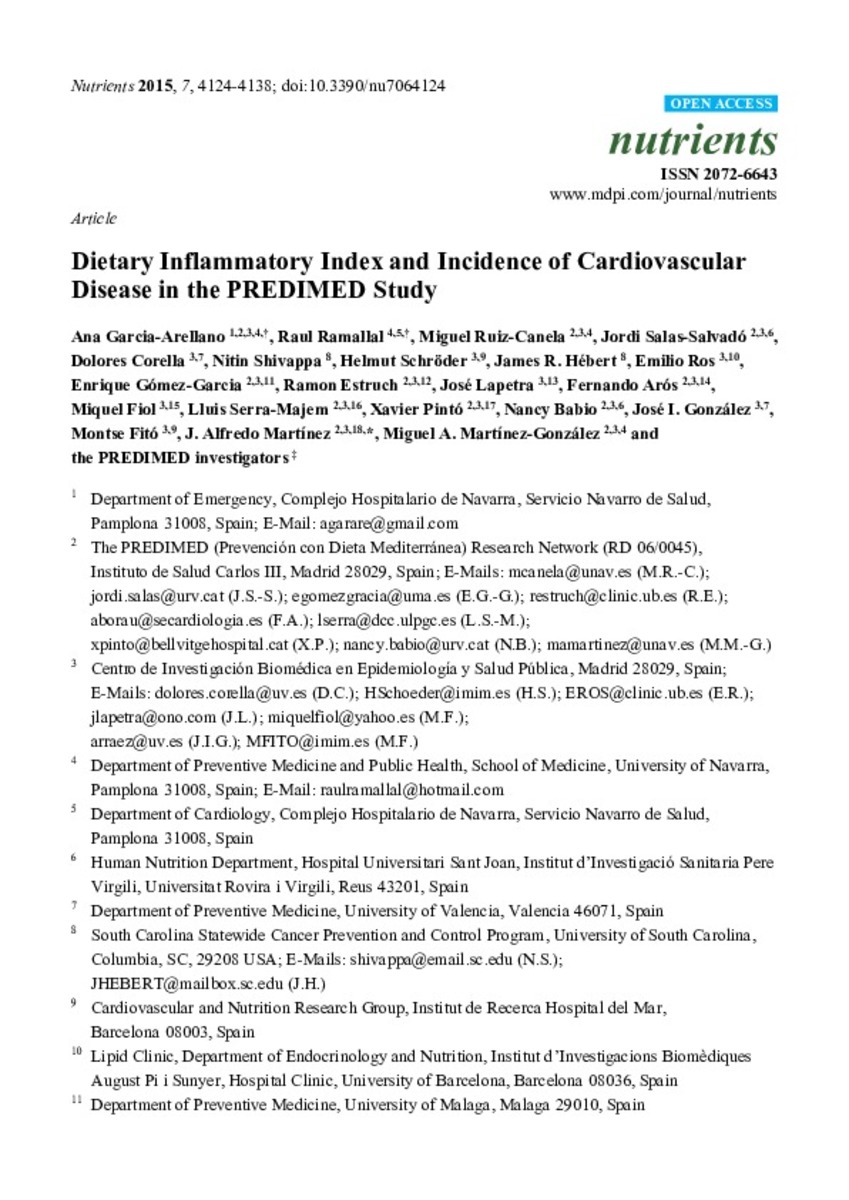Proyecto:
Instituto de Salud Carlos III (ISCIII), Centro de Investigación Biomédica en Red de Fisiopatología de la Obesidad y Nutrición (CIBERobn), Fondo de Investigación Sanitaria, Fondo Europeo de Desarrollo Regional (Proyecto de Investigación (PI) 04-2239, PI 05/2584, CP06/00100, PI07/0240, PI07/1138, PI07/0954, PI 07/0473, PI10/01407, PI10/02658, PI11/01647, P11/02505 and PI13/00462), Ministerio de Ciencia e Innovación, Fundación Mapfre 2010, Consejería de Salud de la Junta de Andalucía, Public Health Division of the Department of Health of the Autonomous Gove rnment of Catalonia, Generalitat Valenciana, Regional Government of Navarra, Centre Català de la Nutrició de l'Institut d'Estudis Catalans.
Cita:
Garcia-Arellano A, Ramallal R, Ruiz-Canela M, Salas-Salvadó J, Corella D, Shivappa N, et al. Dietary inflammatory index and incidence of cardiovascular disease in the PREDIMED study. Nutrients. 2015 May;7(6):4124-4138








